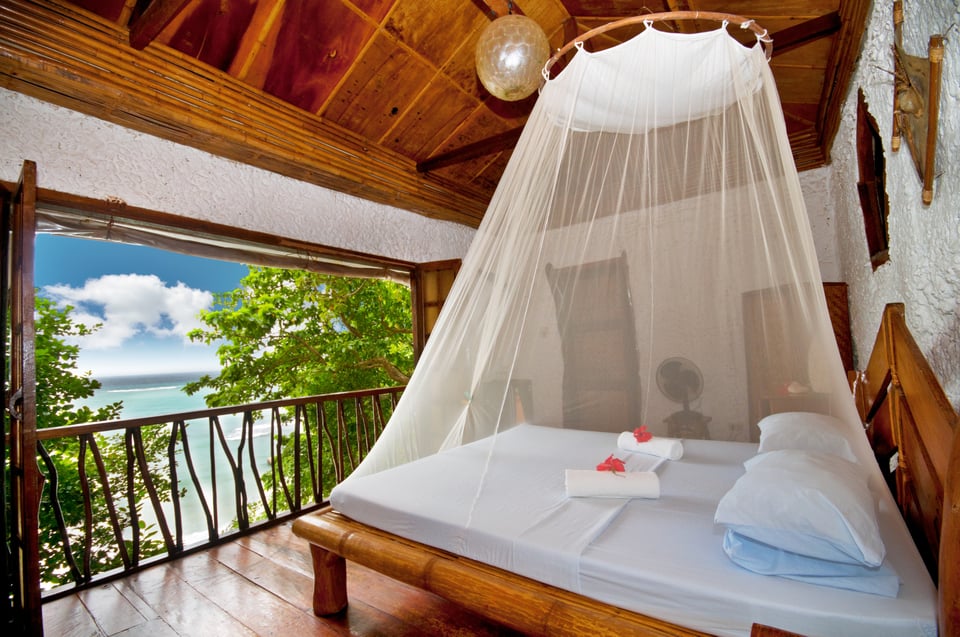Dos and Don’ts for Attribute-Based Selling
When discussing attribute-based selling (ABS), many individuals hold up airlines and restaurants as models for how to successfully implement this form of personalized sales. But according to Hudson Crossing Partner & Co-Founder George Roukas, ABS is actually “pervasive” within our economy.
“It extends to many other goods from cars (choosing trim packages and options) to furniture (choosing fabrics and colors) to computers (choose the base package and then configure to suit),” he explains.
This is important to note because paying for customization has become so prevalent in most areas of the consumer’s life, that it would make sense that hotel guests would expect and appreciate the ability to customize their hotel booking as well.
In fact, recent research from Stayntouch and the NYU SPS Jonathan M. Tisch Center of Hospitality found that 60 percent of travelers find value in the ability to customize a guest room via ABS and 56 percent of respondents indicated it would be a convenient way to ensure their most desired amenities and room elements are available and factored into their booking.
With this in mind, hoteliers may be wondering: What lessons can I learn from other industries that have implemented attribute-based selling for decades, if not longer? In this article, we’ll explore some very important dos and don’ts.
Benefits of Helping Hotel Guests Select the Features They Want
“Traditionally, hoteliers have monetized basic features of a room to sell generic room types such as a room with a king bed, a room with a sea view etc. The concept of attribute-based selling (ABS) is to effectively increase the amount of unique, sellable room combinations without listing 40 room types and making the customer choose during the booking process.” —Iain Saxton, SVP Strategist CRS & PMS, Hospitality, Amadeus. READ MORE!
ABS Works Well with Upselling
While selling room attributes can be lucrative for hoteliers, don’t forget to layer in non-room products such as F&B packages, spa packages, parking, etc., says Iain Saxton, SVP Strategies CRS & PMS, Hospitality, Amadeus.
“The ability to offer ancillary items beyond room type can be what makes the difference for a guest when looking to book a hotel,” he adds.
However, it is important for hoteliers to consider the operational complexities of offering some of these non-room products, Saxton adds. For example, a late check-out may only be an option for a certain number of rooms or managers will have operational challenges when it comes to housekeeping. Therefore, hoteliers need to consider what additional ancillary items add value to the customer and help the hotel to stand out within their competitive set but will not create an operational nightmare to achieve.
Win Over Consumers with Marketing
Consumers hate the feeling of being “nickel and dimed,” and when airlines first started unbundling the airline experience, that’s exactly what they felt, explains Will Berrey, senior director of product management, IBS Software. In fact, entire websites were created just to complain about these new strategies. (For any Gen Zers reading this article, that’s because Facebook and Twitter didn’t exist yet.)
“One lesson for the hotel industry is that you have to try to get in front of any backlash,” he adds. “It won’t be possible to entirely avoid complaints that paying for housekeeping is a cynical money grab, but the hotel industry should combat that message with clear and focused information, shared across as many channels as possible, to avoid confusion and disappointment.”
This could be easier said than done. Consider resort fees, says Robert Cole, Founder and CEO of Rock Cheetah. Hoteliers had a serious misstep when it came to marketing these fees which caused a lot of consumer backlash. They tried to say the fees were for using the pool, the fitness center and the Wi-Fi network,but guests felt that the use of these amenities should have been included in the price of the room and that hoteliers were just taking advantage of them.
“So when it comes to ABS, the messaging has to be very carefully managed,” Cole says.
To that end, hoteliers should be crafting their marketing strategy and messaging long before they roll out ABS. According to Berrey, one message could be that “guests now have many more flexible options to customize their experience. No two guests are the same and so no two guests are going to want all the same things at the same price.”
Another strategy is to market ABS as a form of pricing transparency. When done correctly, hoteliers can ensure that guests don’t feel as though they overpaid for a room with amenities that they didn’t want or that they were assigned a room that didn’t live up to their exact criteria, says Adam Mogelonsky, partner, Hotel Mogel Consulting Ltd.
“In this sense, ABS adds a new layer of booking confidence to bolster pre-arrival peace of mind,” he adds.
When to Offer ABS
When it comes to rolling out attribute-based selling, Dan Hogan, Chief Product Officer, Stayntouch, recommends that hoteliers take it slow and steady.
“Airlines and restaurants gradually added attributes as purchase options, rather than launching a full suite of offerings from the beginning,” he notes. “Hotels must think small [to begin with. For example, decide] what constitutes a base room and then add guests’ most desirable attributes to the booking process over time.”
After a hotel has rolled out ABS, it may seem to make sense to offer a bevy of attributes to guests at the time of booking, but hoteliers might want to reconsider this strategy.
Hoteliers need to beware of ‘shopper paralysis’ or ‘the paradox of choice’ where too many options all at once cause booking abandonment, says Adam Mogelonsky, partner, Hotel Mogel Consulting Ltd. Prior to arriving at the hotel’s booking engine, travelers are often comparing dozens of properties and sorting through star ratings, price points, brand standards, locations, views, onsite amenities and guest reviews.
“Once they’re within the booking engine, they are bombarded with room categories, each accompanied by a fact sheet of in-room features that requires more time and mental energy to process,” Mogelonsky adds. “Decision fatigue sets in at this point; the customer is exhausted, and adding ABS would be overkill. Instead, give the guest a break. Let the reservation breathe, then prompt them to select their specific room for an incremental fee one week or three days out from the intended arrival date.”
And by giving the reservation some space, hoteliers can prevent occupancy gaps. If a guest reserves a specific room months in advance, it could prevent the manager from shifting guests around to make important, logical business decisions.
“Hoteliers need to be able to dynamically juggle room assignments as close to the arrival date as possible in order to maximize occupancy by being able to accommodate non-overlapping reservations,” Mogelonsky adds. “Generally speaking, it is better to re-engage the guest in the days leading up to arrival with an ABS offer where a two-way connection with the PMS can filter only those specific rooms or suites that hotels may not sell through other distribution channels that close to the date.”
Another way to prevent guests from feeling like they’re getting nickel and dimed is to be reasonable with what is deemed a room attribute, Roukas says.
“The attributes you want to offer customers should be the ones that can make a really meaningful difference to the customers such that they would expect to pay for them,” Roukas adds. “When people add toppings to a pizza, they don’t expect them to be free. We need to do the same with hotel attributes. You want them to feel like they’re customizing their experience in a way that makes financial sense — not that they’re having to pay for things that should come with every room. Getting sheets on a bed should not be an attribute. But in certain circumstances, asking for Frette 1000 count sheets might be.”
And finally, it’s no secret that the continuing effects of the pandemic have had a detrimental impact on standard amenities and services, says Dan Hogan, Chief Product Officer, Stayntouch. In fact, they’re no longer standard — for the most part — anymore. This has caused guests to look for ways to have more control over their stay and marketing ABS as a way to do this could be a win-win for guests and for hoteliers.
Take the Time to Create an ABS Strategy
Once a hotelier has deemed what are acceptable attributes, the next step is to appropriately price them for the guest.
“Airlines have shown that guests will pay more for extras that are legitimately better, but pricing has to be fair and give all travelers the same opportunity to enjoy them,” says Tim Peter, Founder, Tim Peter & Associates. “Look at amenities and attributes you’re already able to upsell before deciding what attributes you’ll expose to guests.”
And don’t offer consumers the option to purchase an attribute that you can’t guarantee will be available to them when they arrive on property.
“The most important thing hotels can learn from ABS’ struggles in the airline and restaurant industry is the need to consistently provide attributes consumers purchase and find ways to exclude them from purchase if they are unavailable,” Hogan says. “Consumers are willing to pay more for attributes that are guaranteed to be waiting for them on arrival, as long as operators are able to deliver on these promises.”
And don’t roll out every possible attribute all at once, Peter adds. Instead, start with specific, high-value items — such as the guestroom view, the proximity to the elevator, etc. — and then gradually expand as you learn what will work well for your specific guest and what won’t.
Roukas agrees, noting that the only way to get ABS right will be to “test, test and then test some more! The companies that will win the most in ABS will be those that do not assume to know what their customers want. That kind of hubris will only lead to tears!”








